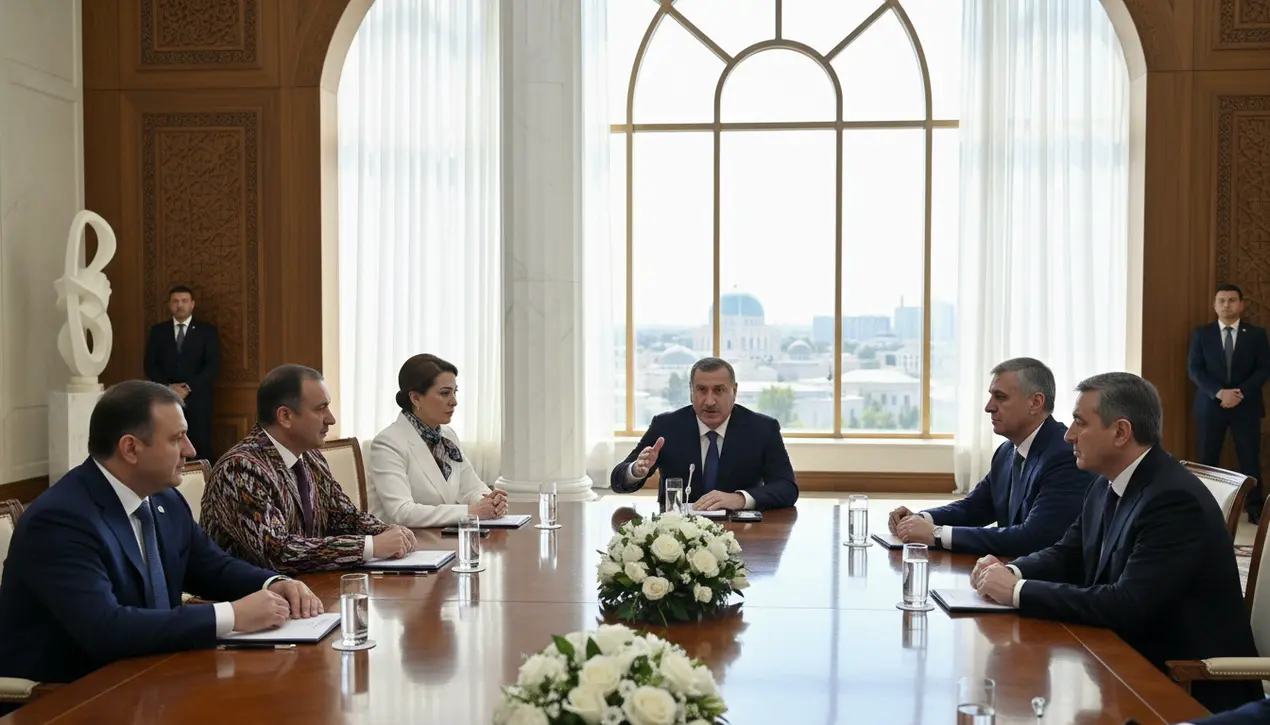
PoliticsdiplomacyBilateral Relations
Central Asian Leaders Strengthen Ties as Azerbaijan Joins Forum
OL
Oliver Scott
3 hours ago7 min read1 comments
The Seventh Consultative Meeting of Central Asian leaders in Tashkent wasn't merely another diplomatic photo opportunity; it was a calculated geopolitical maneuver in a region increasingly caught in the crosscurrents of global power competition. The formal agenda—strengthening political dialogue, economic integration, and collective security—belies the profound strategic recalibration underway.The most significant signal was the inclusion of Azerbaijan, a nation whose energy wealth and military prowess, freshly honed in the 2020 Nagorno-Karabakh war, extend its influence far beyond the South Caucasus. This move effectively creates a nascent bloc stretching from the Caspian Sea to the borders of Western China, a corridor of immense importance for energy transit and, crucially, for circumventing traditional Russian routes.The risk calculus here is multi-layered. For the Central Asian republics—Kazakhstan, Kyrgyzstan, Uzbekistan, Tajikistan, and Turkmenistan—this is a deliberate, if cautious, diversification of partnerships.For decades, their political and economic fortunes were tethered to Moscow's will, but the war in Ukraine has exposed the fragility of that anchor. Russia's diminished capacity to act as a regional security guarantor and its preoccupation with Western sanctions have created a power vacuum that multiple actors are eager to fill.China, with its Belt and Road Initiative, offers economic leverage, but its presence is often viewed with suspicion. Turkey, with cultural and linguistic ties, promotes a pan-Turkic vision.By formally bringing Azerbaijan into their fold, the Central Asian states are not just adding a member; they are constructing a southern-tier alliance that enhances their bargaining power with all these external players. The immediate consequence is a direct challenge to the Russia-dominated Collective Security Treaty Organization (CSTO), whose credibility has been shattered by its ineffective response to ethnic violence in Kazakhstan and border clashes between Kyrgyzstan and Tajikistan.The Tashkent meeting signals a preference for a more flexible, regional security architecture where these nations can address mutual threats—from Islamic extremism to water disputes—without automatic deference to the Kremlin. For Azerbaijan, the benefits are equally strategic.It gains a formalized political and economic gateway to the vast Central Asian markets and resources, reducing its own reliance on transit through Russia and Iran. President Ilham Aliyev’s presence alongside the Central Asian leaders projects an image of a rising regional power, a status he has aggressively pursued.However, the risks are palpable. Moscow will not view this consolidation lightly.While it may be too stretched to offer overt opposition, it can leverage its remaining influence through hybrid means—energy price manipulations, orchestrated protests, or cyber campaigns—to destabilize governments that drift too far from its orbit. Furthermore, integrating Azerbaijan, a country still technically at war with Armenia and closely allied with Turkey, introduces a new layer of complexity into the region's delicate ethnic and political balances.The long-term scenario is one of a more multipolar and volatile Central Asia. This forum could evolve into a robust organization capable of coordinating infrastructure projects, like the Trans-Caspian transport corridor, and presenting a unified front on issues like water-sharing from the Amu Darya and Syr Darya rivers.Alternatively, it could falter under the weight of internal rivalries and external pressure, becoming just another talking shop. The Tashkent gathering was a clear bet on the former—a high-stakes wager by regional elites that their future security and prosperity lie in a collective strength independent of any single hegemon.
#Central Asia
#regional integration
#Azerbaijan
#diplomacy
#political dialogue
#economic cooperation
#collective security
#featured
Stay Informed. Act Smarter.
Get weekly highlights, major headlines, and expert insights — then put your knowledge to work in our live prediction markets.
Related News
Comments
Loading comments...
© 2025 Outpoll Service LTD. All rights reserved.